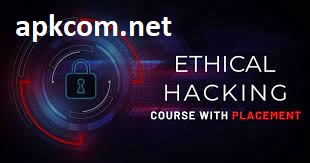Ethical Hacking Certifications, practice of ethical hacking performs cyber security tests using authorized security breaches. An authorized hacker executes legal expeditions into system weaknesses trying to discover threats in software or databases.
The article outlines both the responsibilities of ethical hackers and the 10 best certification programs that boost professionals toward success in ethical hacking careers.
Security testing through ethical hacking employs pre-authenticated attacks for vulnerability detection in information systems.

What Is Ethical Hacking?
The security practice of ethical hacking is a pre-authorized attack method that tests cyber security systems. Approved hackers use legal authorization to seek out system and software weaknesses and demonstrate security vulnerabilities.
The international criminal underworld constantly develops complex methods to attack enterprise systems so organizations experience difficulties maintaining security. Companies should analyze the attack strategies hackers could adopt by stepping into their mindset.
The purpose of ethical hacking matches this requirement. The process brings professionals who possess hacker abilities into a company to examine IT infrastructure without any criminal purpose.
To gain access to critical applications or datasets within the company framework the ethical hacker attempts penetration of the defenses before finding unexplored vulnerabilities and exploiting all weak points through social engineering methods.

The ethical hacker methods lead to a submission of findings to the company which details the attack sequence and potential organizational risks from unauthorized access of data or application.
Ethical hacking has several benefits. The practice allows organizations to check their security status from both internal and external viewpoints. The evaluation process reveals security faults that the organization would not have envisioned throughout the system development and deployment stages.
Through ethical hacking, the company gains knowledge about the criminal tools and methods that hackers utilize. The enterprise can protect itself by using this information to develop countermeasures against particular criminal techniques.
New and upcoming digital technologies receive protection through ethical hacking since they often lack field-based testing protocols.
The lack of industrial Internet of Things (IoT) adoption in small and medium enterprise space benefits from ethical hacker analysis because they can detect unidentified security problems in infrastructure. Young businesses should implement ethical hacking practices because current digital change momentum will continue increasing rapidly.
Ethical hackers belong to the three main divisions of hackers which cover:
Black hat hacker describes cybercriminals who enter IT infrastructure infrastructure to pursue malicious activities. The attackers seek various objectives including intellectual property theft and threats to publish stolen data for ransom or financial ransom to reroute funds or similar actions.
These attackers possess strong abilities in cyber attack methods and full expertise in major enterprise software while having the capability to detect network security flaws.

A white hat hacker serves as the ethical version of an ethical hacker with equivalent expertise yet without wanting unlawful profit. Top organizations together with governments enable white hat hackers to evaluate system weaknesses and perform analysis of zero-day attack sources.
A gray hat hacker challenges IT systems without enterprise backing or authorization before such access activities.